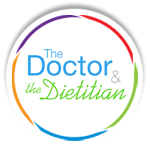In the ideal eating situation we would eat tasty, wholesome food which is broken down well, the nutrients would be utilized, and waste would be eliminated in a timely fashion. But a typical situation is often much different. Indigestion is a problem that many people suffer from. This word can be used to describe a feeling of fullness, gaseousness in the abdomen, and heartburn. Indigestion can be attributed to many causes, from increased secretion of acid, decreased secretion of acid, to enzyme deficiency. It is not normal to have digestive problems and a person who suffers from indigestion should be seen by a natural medicine physician in order to avoid the long term need for over the counter antacids, and the like.
“As soon as the dog starts barking, my stomach starts rumbling”
This is how a good friend of ours used to sit down to dinner. The dog goes crazy begging for food and she could not enjoy her meal without getting indigestion from stress. Very often digestion can start going wrong just by being “stressed out.” When a person is in a stressed state, the body is programmed to shove blood and energy away from the digestive tract in favor of the skeletal muscles and brain. Learning to calm the mind and body is extremely important in relieving stress and improving digestion. People who are constantly eating at their desks finishing work or trying to drive through rush hour traffic while wolfing down fast food and then feel lousy are good examples too.
If you find that your stress level is leaving you feeling bloated and miserable, take steps to change that. Concentrate on enjoying your meal rather than work, returning phone calls, or getting the house cleaned. Put on some nice music, light the candles, and turn off the TV at dinner time. Very often we talk to people who could not recall the last time he or she made a nice home-cooked meal and sat down to eat in a relaxed atmosphere. We are NOT talking about dining out. A good home-cooked, sit-down meal is hard to come by nowadays, but it shouldn’t be. Make your main mealtime as relaxed as possible!
The importance of pH balance
The stomach’s optimal pH range is 1.5 to 2.5, with hydrochloric acid being the primary stomach acid. The use of antacids (prescription and over the counter) increases the stomach pH to 3.5. The pH increase inhibits the action of pepsin, an enzyme involved in protein digestion that can be irritating to the stomach. Even though taking antacids relieved the symptoms, people have to keep in mind that hydrochloric acid and pepsin are very important in digestion. When the secretion is not enough, or hindered, proper digestion and mineral dissociation will not occur. The change in pH can affect gut microbial flora, including the overgrowth of Helicobacter pylori, a bacterial infection of the gut.
Pancreatic Enzyme Insufficiency
Often we see people who lack sufficient enzymes to maintain healthy digestion, including pancreatic enzymes. Impaired digestion, malabsorption, nutrient deficiencies and abdominal discomfort characterize it. Physical and laboratory tests can be used to assess pancreatic insufficiency include abdominal bloating and discomfort, gas, indigestion, and the passing of undigested food in the stool.
Small Intestine Bacterial Overgrowth
The upper portion of the human small intestine is designed to be relatively free of bacteria. The reason is when bacteria are present in significant concentrations in the duodenum and jejunum they compete with their host for nutrition. The bacteria can ferment the carbohydrates and produce excessive gas, bloating, and abdominal distension. At our clinic we perform careful evaluation for small intestine for bacterial overgrowth.
Favorite foods are often the cause of frequent indigestion
If you suffer from food allergies, it is likely that those will cause, or worsen, your indigestion. This is a good place to start for those who have tested positive for food sensitivities but have yet to cut them out of your diet. Your body is telling you that it does not need, nor want, the food that you are eating. We understand that it is often difficult to begin taking foods out of your diet and replacing them with others you might not like as well. But if you want to improve your overall health, look for the obvious solutions-COMMON FOODS, NOT OVER THE COUNTER ANTACIDS!
1) Know Your Diet Type and Food Allergies
Did you know that half of your immune system is located in your gut wall? It is located there to protect your body from foreign invaders that may enter through the mouth. At Caring Medical we check for IgG antibodies, or delayed response antibodies. If you are eating a food your are allergic to, it can cause inflammation of your gut. If your gut wall is inflamed, you can be sure that you will experience some sort of digestion disruption, whether it is constipation, diarrhea, gas or all of the above. It is crucial to gut health and overall health to know what foods your body is allergic to, if any.
2) Eat Adequate Fiber
Fiber can help with both constipation and diarrhea by ensuring healthy bowel movements. Vegetables and whole grains will be your best sources, or fruit if your diet allows it.
3) Drink Enough Water
If you are getting adequate fiber, you also have to be getting adequate water to keep things moving through your gut. Water intake is key to your digestive health. While some people believe that 8 glasses of water per day is adequate, we individualize the recommendation to half your body weight in ounces. So whatever your body weight is in pounds, take half of that number and that should be your water intake per day in ounces. (Example: 160 pound person should drink 80 ounces of water.)
4) Take Probiotics
Did you know that there are 3 pounds of bacteria living in your gut? That’s over 100 trillion bacteria! These tiny bacteria help maintain your immune system, inhibit viruses and harmful bacteria from entering your body, and ensure the proper breakdown of food. However the number of bacteria can be decreased through stress, poor diet, the use of antibiotics, disease and other factors. Once the “good” bacteria level is decreased, it leaves room for “bad” bacteria to take over. Taking a good probiotic supplement can restore the good bacteria in your gut so that normal and healthy digestion can occur.
5) Use Digestive Enzymes
Not only can your body lose healthy bacteria, it can also lose important digestive enzymes. As the level of enzymes decrease in your body, the ability to properly break down food will occur, resulting in bloating and discomfort, gas, indigestion and passing of undigested food in the stool. A good enzyme blend includes proteases, amylases and cellulases. These enzymes are usually taken before or with meals to aid in breaking down the food in each meal.
6) Reduce Stress and Relax!
Did you know that stress and tension can cause irritable bowel symptoms? When your body senses stress, it can pump out extra gastric juices leading to upset stomach and sometimes diarrhea. Have you ever had a “nervous stomach”? Stress or anxiety can be felt in your stomach! Try some relaxation techniques such as deep breathing, calm thoughts, or prayer. Stress can do a number on your body so take some time to relax!
Or what if you are tense and can feel your muscles tightening? Did you know that your digestive track is made out of muscle? Some people who struggle with constipation have very stressful lives and can tense up, preventing any movement in the gut. Again, take some time to relax.



